GBCI 2022: Drivers and barriers to business simplification

TMF Group’s Global Business Complexity Index 2022 (GBCI) explores 292 different indicators relating to business complexity, to provide in-depth analysis of the global and local challenges that impact on the ease of doing business across the world.
By examining historic GBCI data and that gathered in 2022 we have identified several common characteristics, or drivers of simplicity, that tend to make a jurisdiction a more business-friendly environment. Those lacking these hallmarks are typically more complex places to do business.
Drivers of simplicity:
- political, social and economic stability
- digital literacy
- open and defined laws and legislation
- international alignment.
Political, economic and social stability
Over the past two years the global political, economic and social environment has faced unprecedented uncertainty. The Covid-19 pandemic has had an impact that will last for many years. However, other factors, including geopolitical tension between China and the US, and the Russian invasion of Ukraine, have increased the climate of uncertainty. This has led to more local experts predicting instability over the next five years.
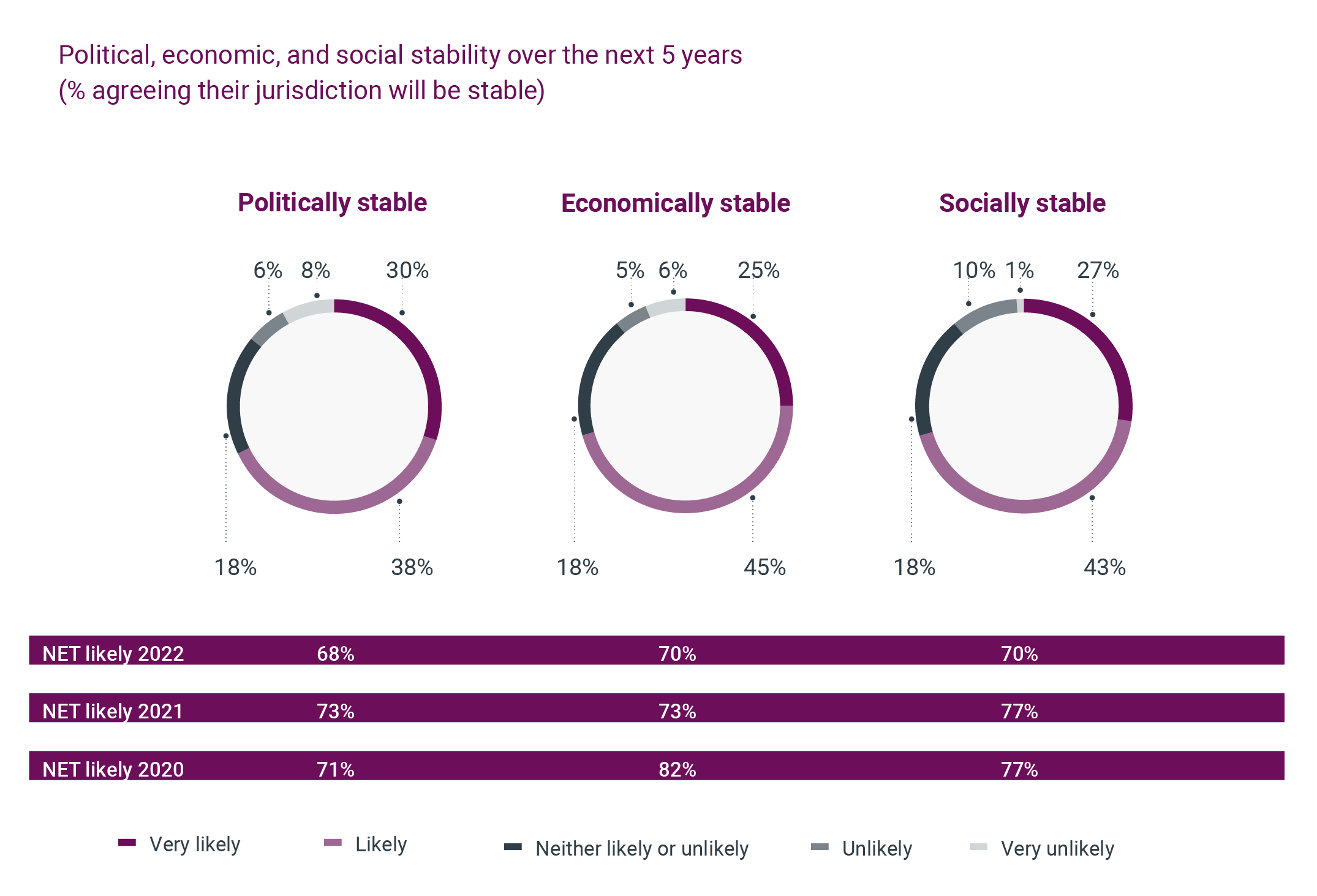
Political stability
This prediction has remained the most stable factor since 2020. However, there have been some regional changes. In 2020, 60% of TMF Group experts in South America predicted that over the next five years their jurisdiction would be politically stable. This has dropped to just 30% in 2022. Jurisdictions driving this shift in the region include Argentina, Bolivia, Peru, Honduras, Venezuela, and Chile.
Our experts in Peru report that, following the election of President Pedro Castillo in July 2021, Peru has been experiencing uncertainty. Castillo’s term comes after six years of political insecurity including temporary and caretaker governments and widespread political dissatisfaction. Other jurisdictions in the region, such as Colombia, have elections in 2022 that impact the political climate. The Chilean government is also rewriting its constitution, which increases business uncertainty.
Economic stability
Since 2020 this area has seen the biggest drop in confidence among experts, with an increasing number predicting economic instability. Covid-19 has been a clear factor. As we emerge from the pandemic inflation crises are to the fore in many jurisdictions.
In previous GBCI reports we have observed inflation issues in many South American jurisdictions. However, following the pandemic, EMEA, APAC and North America are also finding themselves facing inflationary pressures.
In New Zealand, during the Covid-19 pandemic the government supported businesses and individuals, offering generous packages. Although a great help to those operating and living in the jurisdiction, this has also added to the rate of inflation, as TMF Group expert Vincent Gin explains:
A consequence of this governmental support is that inflation increases. We're pumping so much more money into the economy that it's boosting and inflating prices as well. There are other elements involved, of course, but it’s a major contributory factor.
Turkey has been experiencing hyperinflation following the pandemic. This has created a need for businesses operating in the jurisdiction to apply for hyperinflation accounting which will come into place from next year, adding to complexity. However, such inflation does make the jurisdiction more attractive for some investors as Turkey is a more affordable market.
Social stability
Regionally the predicted reduction in social stability is driven by South America and EMEA. In EMEA there have been widespread changes in mood. Since 2020, the following jurisdictions have predicted that they will be less socially stable than previously: Greece, Turkey, Hungary, Poland, Italy, Czech Republic, Ukraine.
It should be noted, research for this report was conducted before the Russian invasion of Ukraine took place. So, the Ukrainian prediction of less social stability is not necessarily linked to the crisis. However, it is important to consider how expert opinion on political, social, and economic stability may change now we’re able to more clearly understand the crisis. It will be key to consider the war currently being fought in Ukraine when looking at foreign business investment, incorporation and operation.
Digital literacy
Globally the way businesses operate and incorporate is becoming increasingly digitalised. In some places this has been accelerated by the Covid-19 pandemic. However, many jurisdictions are turning to technology to make their jurisdiction less complex and more attractive to foreign businesses and investors.
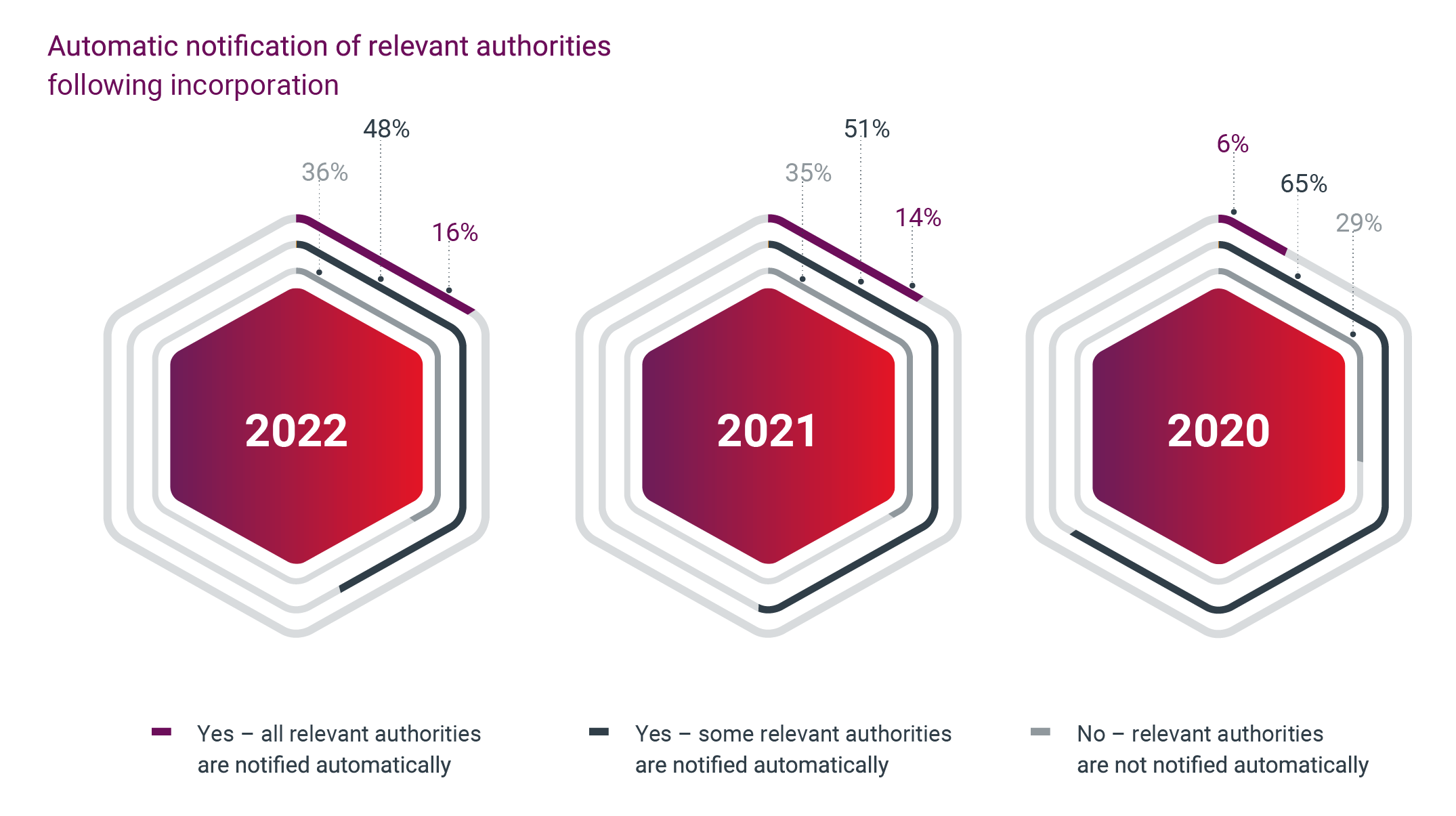
For instance, since 2020 the percentage of jurisdictions where all relevant authorities are automatically notified following incorporation has risen by 10%. This significantly reduces the administrational burden on businesses.
Over the past year, Jersey has become simpler in our GBCI ranking, moving from 45th most complex in 2021 to 72nd in 2022. A key factor is the technological advancements that have facilitated contact between businesses and the relevant governing bodies.
Since 2020 we have also observed a steady rise in jurisdictions mandating the need to issue tax invoices in an electronic format.
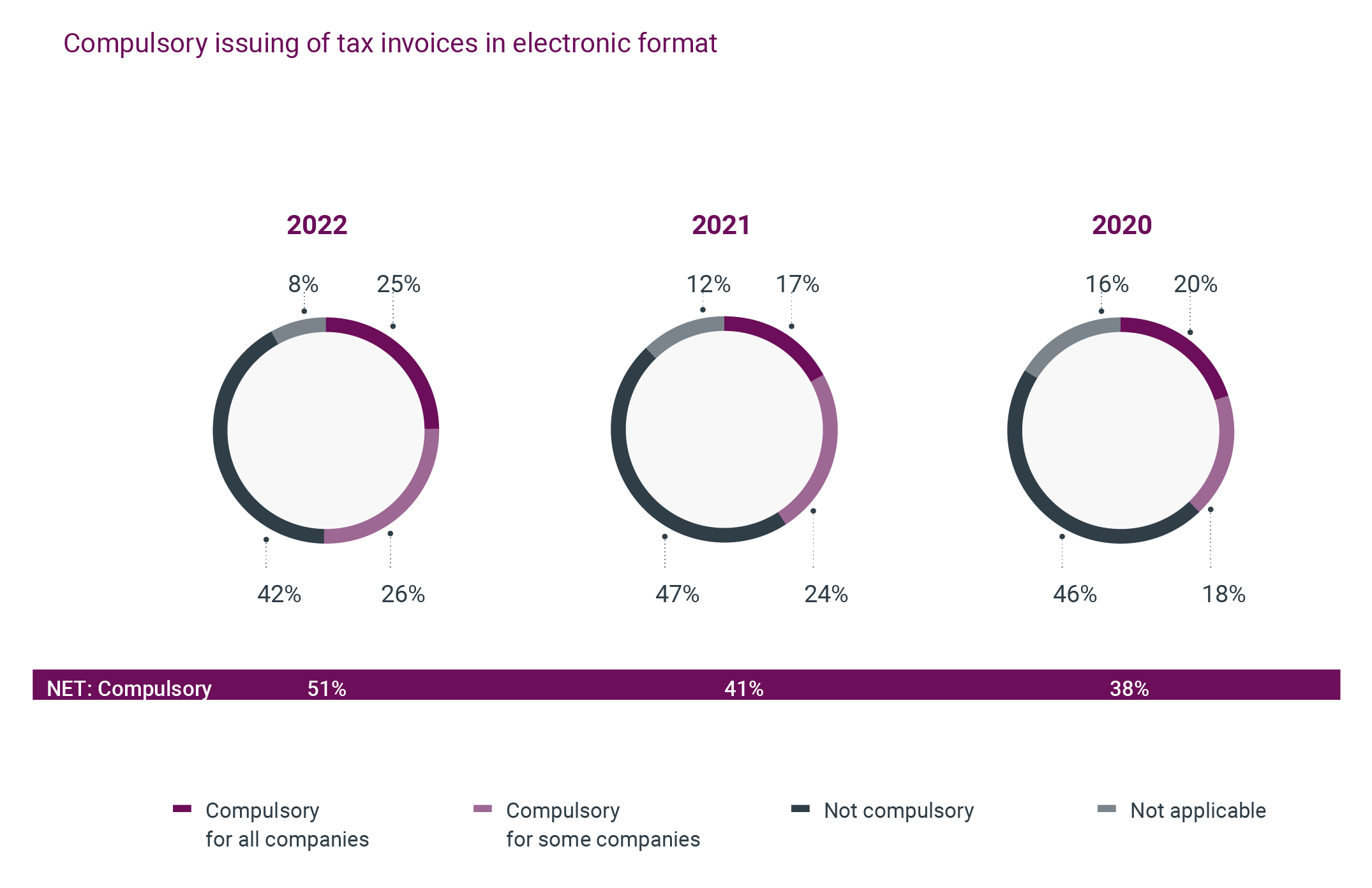
In 2022 more than half (51%) of jurisdictions have made it compulsory for tax invoices to be issued in an electronic format, compared to only 38% in 2020. Looking at the jurisdictions we observe year on year to be the simplest, we see that they tend to have a longstanding commitment to digitalisation. These include Denmark, Curaçao and the BVI.
Although, over time, digitalisation can drive simplicity and be a benefit for foreign businesses, many jurisdictions report an initial ‘hump’ of complexity while governments, bodies and businesses adapt to new digital processes.
For example, since 2020, India has become gradually simpler in our index, falling from 18th most complex to 25th in 2022. Its economy has become more digitalised in recent years, and although this does make the jurisdiction more attractive to investors, businesses need to get used to operating in this new way.
We’ve seen a big digital push over the past five years. We have more e-filings in place, which I think the world started to bring in around a decade ago. Back then we were lagging behind, but now we’re catching up. I still remember a few years ago when I would go and line up to file a payroll report. The next day I’d have to go back and queue up again to collect it. It’s very different now.
Open and defined laws and legislations
Jurisdictions where laws and legislation are clear and not open to interpretation tend to be simpler, often because government actively seeks to help businesses adhere to the regulations they put in place.
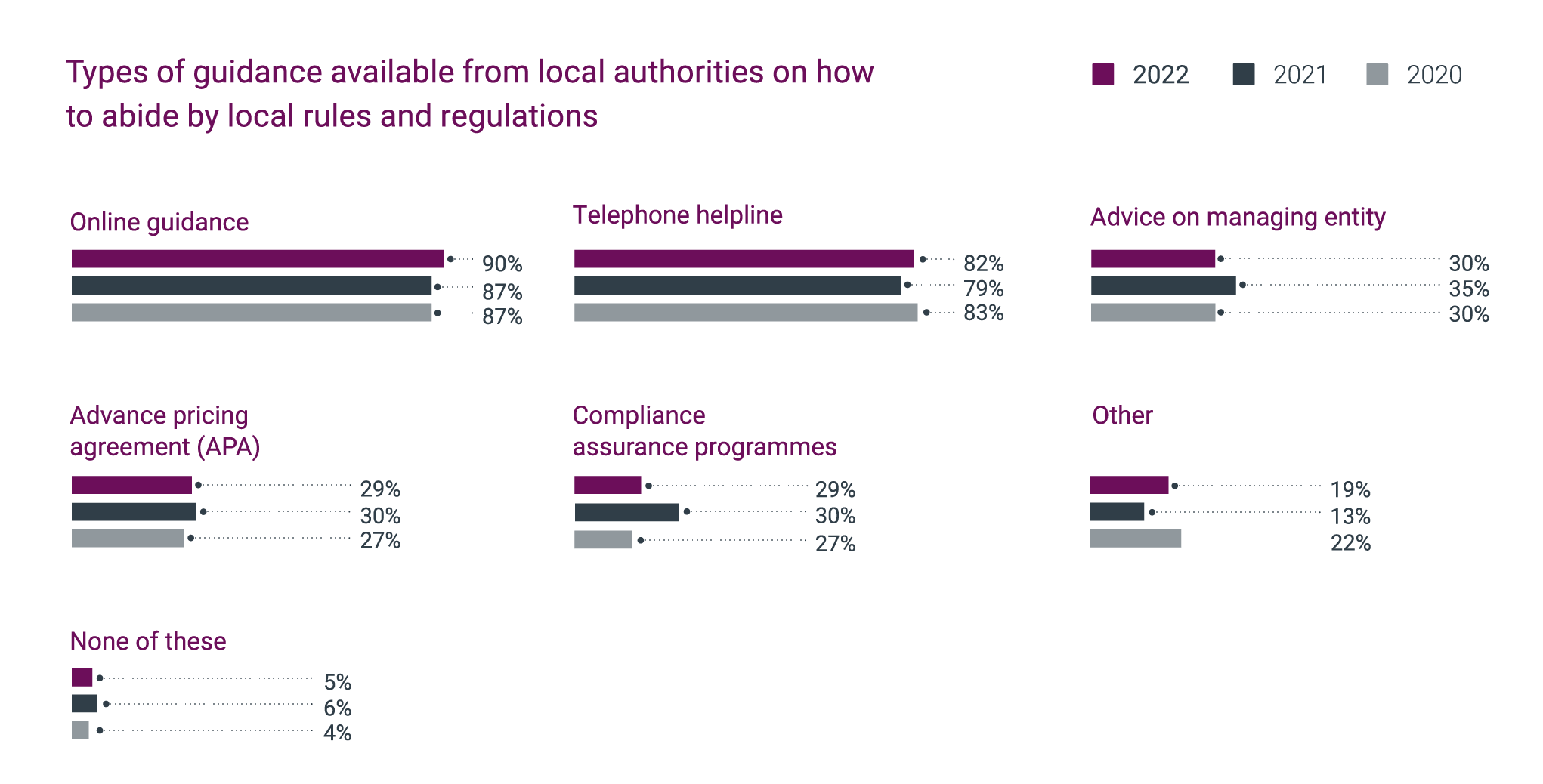
Now 90% of jurisdictions offer online guidance to help businesses abide by local rules and regulations. Only 5% report that there is no on- or offline guidance in place to support organisations, demonstrating a more supportive approach.
Some jurisdictions take this further. In Ireland, for instance, the government works with key stakeholders, including businesses, to shape rules and regulations so that they work well for those impacted by them.
The Irish government and regulators try to collaborate with you to make something work. They'll say no if they won’t help, but they will consult with companies to make things happen.
However, jurisdictions aren’t always helpful when developing rules and regulations. Greece continues to be complex, ranking 6th this year, driven in part by constantly changing and unclear legislation. There are around 150-200 new laws and 1,500-2,000 decisions made related to tax each year.
In China, at the end of 2021, there was a U-turn on new tax laws that would have impacted expatriates working in the jurisdiction. This decision was announced at a late stage, meaning many foreign businesses had already changed processes and procedures to meet the requirements of the tax. Such decisions create administrative burdens for foreign businesses.
On 31 December 2021, the government actually made a U-turn relating to regulation that had been announced two years ago. If you see this kind of unexpected change, you will make businesses quite nervous, what will be next?
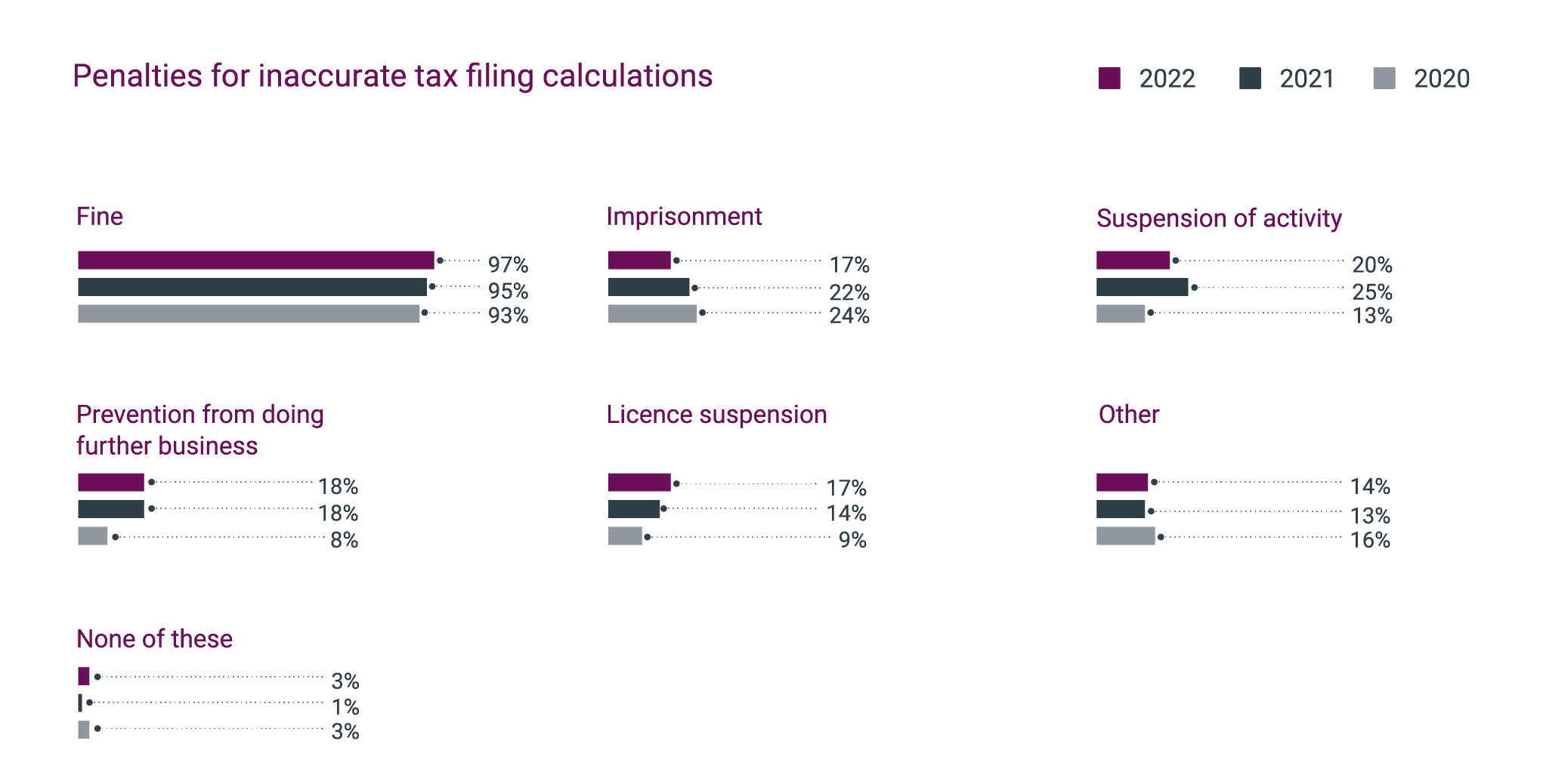
Governments put in place penalties in the case of misdemeanours, such as for submitting inaccurate tax calculations, with 97% of jurisdictions now opting for fines in the case of inaccurate tax filings.
India has recently taken a progressive approach by removing penalties for directors to encourage them to be more open and transparent, resulting in businesses feeling supported.
International alignment
For businesses seeking to incorporate and operate across borders alignment is key, allowing them to operate in a similar manner across multiple jurisdictions.
Adoption of international standards such as CRS and FATCA has been growing in recent years, reflecting a steady global move towards transparency.
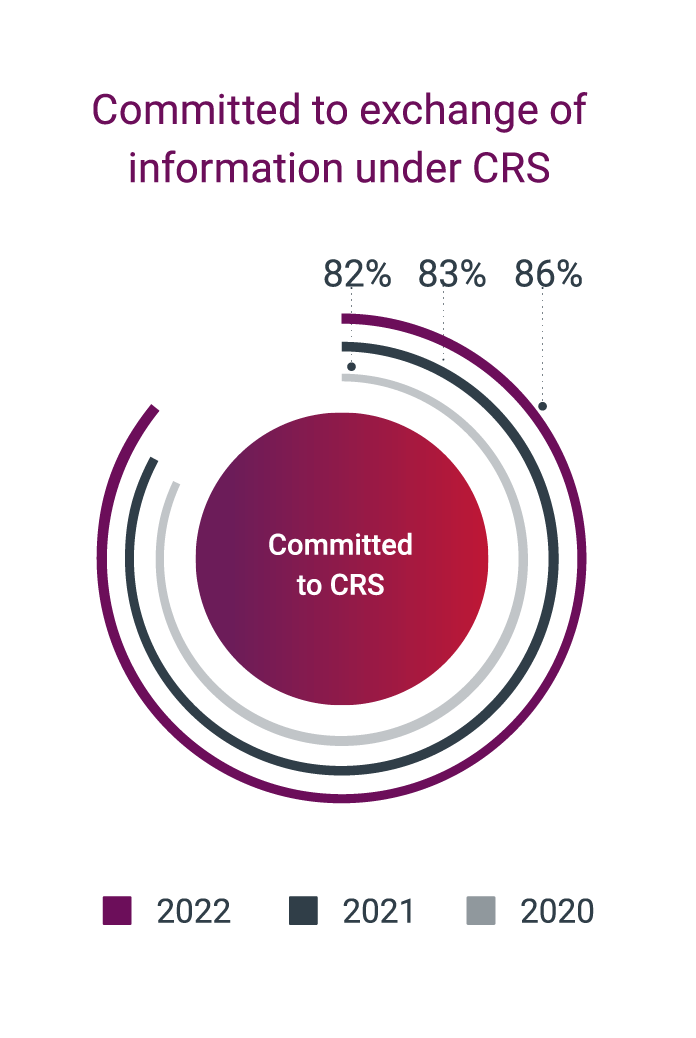
Since its introduction in 2014, CRS has been adopted by 86% of jurisdictions globally. It mandates the exchange financial institution information between jurisdictions and increases transparency. A standardised approach means a foreign business operating in a CRS jurisdiction faces limited complexity adhering to it in other jurisdictions.
The slight increase in adoption of CRS has largely been driven by changes in South America. In 2020, 60% of jurisdictions in the region adhered to CRS, jumping to 89% in 2022. Ecuador and Peru are among jurisdictions to have adopted it since 2020.
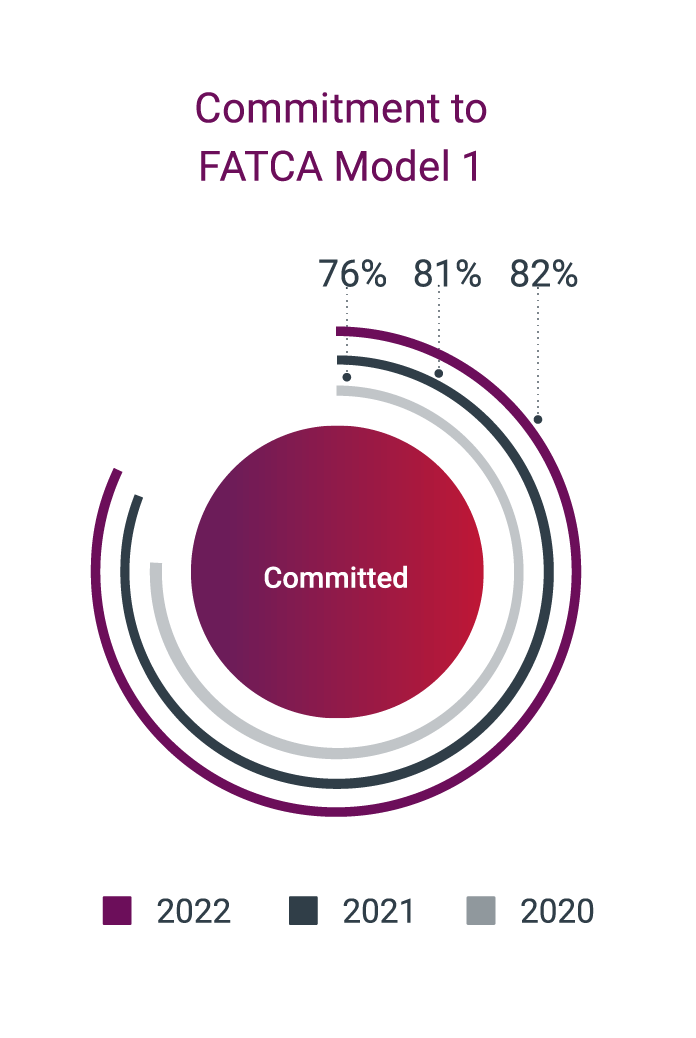
Similarly, adoption of FATCA Model 1 has steadily increased since 2020, while commitment to FATCA under IRS has steadily decreased. FATCA, like CRS, encourages the sharing of information between jurisdictions. Increased commitment to FATCA demonstrates a rise in transparency and global alignment.
Another way that jurisdictions can be internationally aligned is through local language requirements, or a lack thereof. Businesses seeking to incorporate and operate in foreign jurisdictions can find it simpler if paperwork, tax filings and interaction with bodies can be facilitated in a language they speak such as English or Spanish.
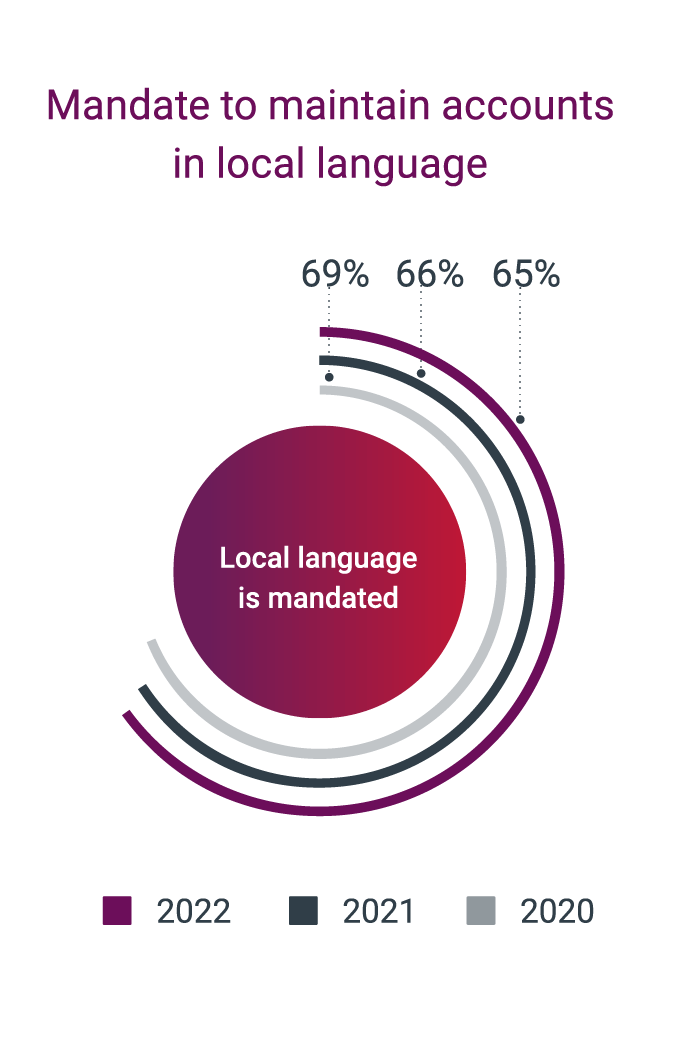
Despite this gradual shift towards delocalising language requirements, jurisdictions such as Slovakia still stipulate that business must operate and report in the local language. The government portal for electronic communication is in Slovak and can be accessed only via national ID or a special ID card that takes a relatively long period of time to acquire. This creates complexity through the need to enlist local support to overcome the language barrier.
The Global Business Complexity Index
The GBCI 2022 provides an authoritative overview of the complexity of establishing and operating businesses around the world. It explores factors driving the success or failure of international business, with a focus on operating in foreign markets, and outlines key themes emerging globally as well as local intricacies across 77 jurisdictions.
Explore the GBCI rankings, analysis and global trends to help you find your path to growth, amid the complexity of corporate compliance.
To download and read the report in full, visit the Global Business Complexity Hub today.
To find out more about the drivers of business complexity in the jurisdictions that matter to you, why not explore our Complexity Insights Dashboard?





